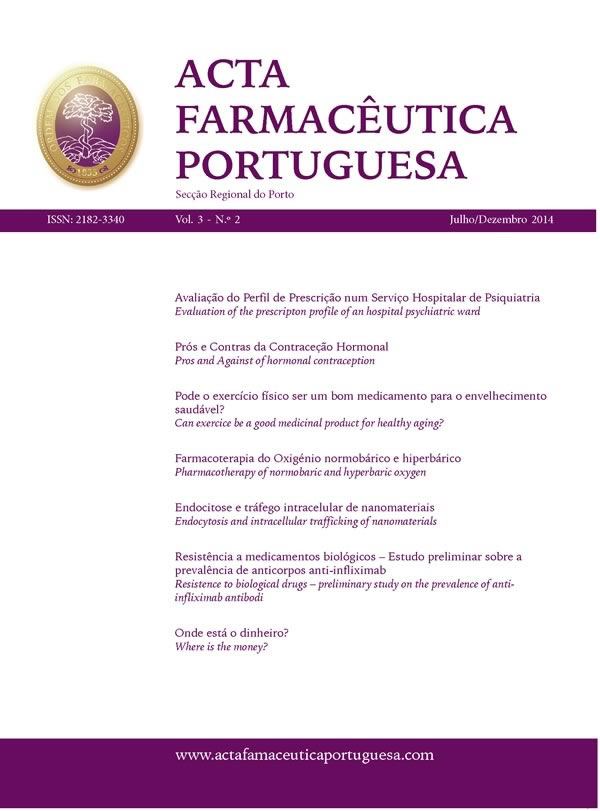Resistence to biological drugs – preliminary study on the prevalence of anti-infliximab antibodies
Abstract
Inhibitors of Tumor Necrosis Factor (iTNF) (infliximab (IFX), adalimumab, etanercept, certolizumab pegol and golimumab), prove to be very useful in the therapeutic approach to chronic inflammatory diseases. The initial response to treatment with these drugs is acceptable for approximately 60-70% of patients. However, there is a significant percentage of patients who do not respond to this therapy. These non-responders can be due to an inadequate concentration of the drug in plasmatic samples and/ or presence of anti-drug antibodies in circulation.
This study was design to determine, in patients undergoing therapy with IFX, the % of those who had sub-therapeutic concentration of the drug and the % of those that evidenced the presence of antiinfliximab antibodies (AcIFX).
177 plasmatic samples were evaluated for determination of IFX and 146 for determination of AcIFX. The results show that 22% of the samples have sub-therapeutic levels of IFX. The prevalence of AcIFX obtained was 23% with 7.5% of these samples with optimal level of IFX. The implementation of a laboratory monitoring program of these drugs is based on the need to ensure the effectiveness of treatment with these drugs, and provide the rational use of these therapeutic drugs, that are very expensive.
References
Pascual-Salcedo D., Plasencia C., Nuño L., Bonilla G., Villalba A., Peiteado D., Díez J., Nagore D.,
Ruiz del Agua A., Moral R., Martin-Mola E., Balsa A. Influence of immunogenicity on the efficacy of long-term treatment of spondyloarthritis with infliximab. Ann Rheum Dis. 2012;71:1955-1960
Marques Pinto G., Filipe P.. Recommendations for High-Quality Use of Biologic Therapies in Adults with Plaque Psoriasis. Acta Médica Portuguesa. 2012; 25(2), 125-141.
Bartelds G.M., Krieckaert, C.L.M., Nurmohamed M.T., Schouwenburg P.A., Lems W.F., Twisk Figura 6. Algoritmo de decisão clínica para doentes com resistência primária ou secundária aos iTNF, após monitorização laboratorial 5. J.W.R., Dijkmans B.A.C., AardenL., Wolbink G.J.. Development of Antidrug Antibodies Against Adalimumab and Association With Disease Activity and Treatment Failure During Long-term Follow-up. JAMA. 2011: 305(14):
-1468.
Roblin X. and Paul S., Theradiag Scientific Information, 2013
Vincent F.B., Morand E.F., Murphy K., MackayF., Mariette X., Marcelli C.. Antidrug antibodies (ADAb) to tumour necrosis factor (TNF)-specific neutralising agents in chronic inflammatory diseases: a real issue, a clinical
perspective. Ann Rheum Dis. 2013; 72(2):165-178.
Infarmed. Consumo de Medicamentos em Meio Hospitalar. Relatório Dez/2013.
Chatzidionysiou K., Askling J., Eriksson J., Kristensen L.E., Vollenhoven R.V.. Effectiveness of
TNF inhibitor switch in RA: results from the national Swedish register. Ann Rheum Dis. 2014: 73; 223-229.


